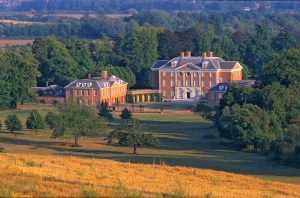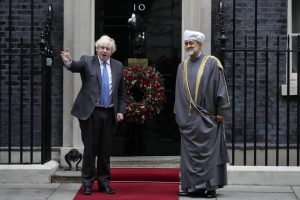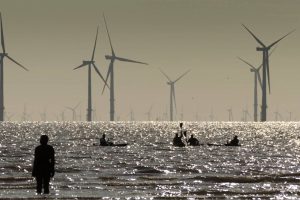London : Britain and the Gulf States signaled they were “setting the stage of a new era” for economic ties following a meeting of foreign ministers on Monday.
The countries will also begin substantive talks on a free trade agreement in the new year, it was announced after the Gulf’s foreign ministers gathered at Chevening House in Kent in a day-long meeting with Liz Truss.
Speaking at her 17th-century grace-and-favour mansion, following talks with the Gulf Co-operation Council ministers Britain’s foreign secretary said an agreement was a “win-win for all parites”.
“I want us to have much deeper links in key areas like trade, investment, development and cybersecurity with a part of the world that is important to Britain’s long-term interests,” she said.
The British government wants to “modernise the relationship” with the Gulf, moving it on from the long tradition of security into the business world, with annual trade worth £30 billion.
During Monday’s meeting the ministers also agreed to much closer cooperation on trade, cyber security and green infrastructure investment into low and middle-income countries.
The countries will furthermore work together to boost “clean, reliable, honest infrastructure financing into the developing world,” the Foreign Office said in a statement.
It was also a moment for both sides to explore the growing shared opportunities offered by green energy. With Gulf funding and British technology, particularly in wind power, there is a strong desire to help developing countries — in East Asia as well as Africa — to move away from fossil fuels into renewables.
Ms Truss, who has gained considerable experience from striking deals around the world as international trade secretary, will seek in the coming year to seal a free trade agreement with the Gulf.
“Closer economic and security ties with our Gulf partners will deliver jobs and opportunities for the British people and help make us all safer,” she said.
The foreign secretary is also keen to harvest economic benefits post-Brexit, seeing Britain’s service industry as an area for expansion into the Gulf.
The formal process for an FTA will begin after the consultation period ends at the end of January and serious discussion can start with the bloc’s six countries.
Despite the Omicron outbreak, the foreign ministers of Oman, Saudi Arabia, Qatar, Bahrain and Kuwait were present with the UAE, represented by the ambassador and the permanent representative to UN. Sultan Haitham of Oman was also in London last week to meet Boris Johnson and Queen Elizabeth.
On the back of the Cop26 climate summit in Glasgow, there is a global realisation of the economic benefits of investing heavily in wind farms, solar power, electricity and other non-fossil fuel alternatives. Working together to help neighbouring states and other nations, Britain hopes the GCC can become a partner to meeting worldwide and regional needs.
David Jones, chairman for the UAE’s All Parliamentary Party Group, sees it as a natural progression from the enduring defence ties Britain shares with the region.
“And that of itself is important in the UAE context, because Dubai World is a major port operator in the UK.”
The Foreign Office, which labelled the GCC as “one of the world’s most important networks for key regional and security issues” said that Yemen, the Afghan crisis and Iran’s “destabilising regional activity” were also discussed.
NU





